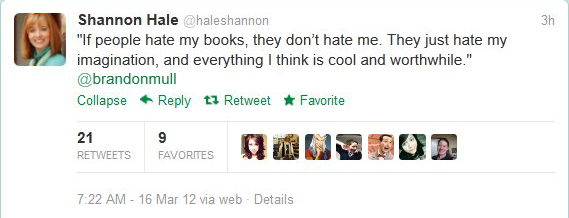Self-Published authors often have to do a great deal more then simply writing and distributing their titles to online bookstores. They often to have to wear the additional hat of a marketer, and hype up their titles via social media and through interacting with their growing fan base. All authors, traditional or indie, have had to deal with negative book reviews and often have to develop a thick skin to not take these reviews personally. In some cases, massive online campaigns are launched by angry people and internet trolls who ruin careers and drive authors away from publishing.
Author Matt Haig wrote a wonderful article on the Book Trust website in which he talked about being a thin-skinned writer. He said: “The paradox is that while having a thin skin might make for better writing, it is not good for the process of being published. I have a new book out next week. There will be reviews. The bad ones will trouble me more than they should. Just as that one tiny hair you find in your peanut butter makes you want to throw away the whole jar.”
Negative reviews are a fact of life when you are dealing with the internet in general and readers who are hiding behind anonymity. One of the worst things an author can do is engage the obvious comments full of hate, as it leads to the pitchforks coming out. There have been many cases in which an author got very emotional reading comments that transcend an honest review and end up being personal attacks on the author themselves. Recently, author Lauren Howard made the decision to pull her debut novel from publication after a firestorm of hatred–including what she initially claimed to have been rape and death threats on GoodReads.
Should authors even bother engaging people who write negative or positive reviews? Professional digital reviewer Denise Enck mentioned, “If someone leaves a good or bad review, don’t comment. Reviewers don’t like to think that an author is, in effect, hovering over them and passing judgment on their reviews either way. If your readers think you’re going to scrutinize and critique what they write, they are going to be less likely to leave a review.” Not interacting with your fans may be painful and may go against your better judgement, but if an author replies to everything, it stinks of desperation.
Norm Schriever, who writes for the Huffington Post, commented that “no one is going to love everything – that’s impossible (and would make the world damn boring.) That’s not your goal. If you try to please everyone you will be miserable. So your job as an author (other than writing the best, most honest book you can) is to find your specific target market and share your work with them as much as possible.”
Finally, novelist Paige Weaver has had great success with her novel Promise Me Darkness, but she stopped reading reviews as her book spread online. Here is her simple advice, “My policy is do not read your reviews. Good or bad. I’ve heard this from other authors so that is my new motto. The first few days after Promise Me Darkness was released, I read all the reviews and they were good, but I knew that the bad ones were coming. Every book has had bad reviews. It is just human nature. We can’t all agree on everything. I do not read reviews on Goodreads, Amazon, or anywhere else. I’m too scared. I haven’t developed that thick skin so many authors told me I had to have in this business. My hubby and friends tell me what the good reviews say and sometimes they tell me what the bad reviews say if they think it might be helpful for my writing. Knowing there are some bad reviews does hurt, I’ll admit, but then I think of that childhood saying – ‘Sticks and stones may break my bones but words will never hurt me.'”
A number of authors have written into Good e-Reader over the last few days about the rising online bullying campaign that is being waged against indie authors. My advice is that you are nobody until someone hates you. If you don’t want to hear negative comments about your work, then writing may not be the career for you.
Michael Kozlowski is the editor-in-chief at Good e-Reader and has written about audiobooks and e-readers for the past fifteen years. Newspapers and websites such as the CBC, CNET, Engadget, Huffington Post and the New York Times have picked up his articles. He Lives in Vancouver, British Columbia, Canada.
